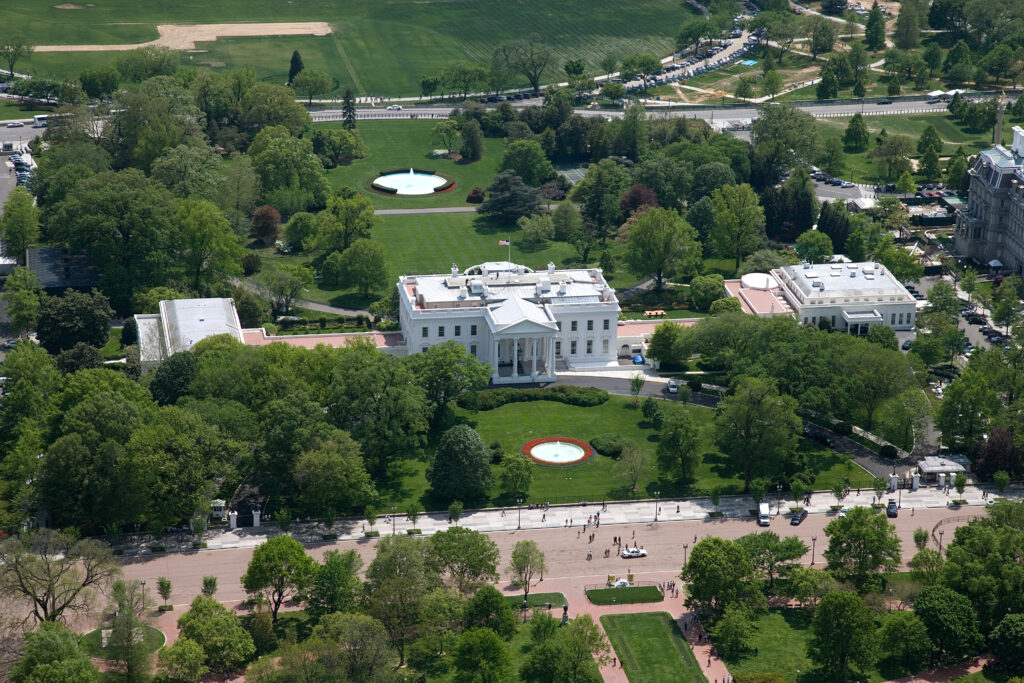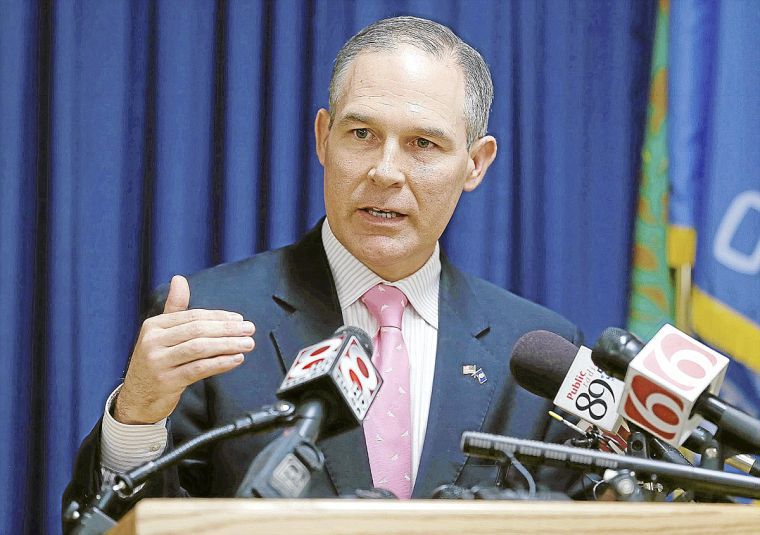US wavers on Kigali
- PostedPublished 12 September 2018
A staggering 32 executives from HVAC and refrigeration companies have written to US President Donald Trump and urged him to ratify the Kigali Amendment to the Montreal Protocol.
The letter, which was copied to Secretary of State Mike Pompeo, represented the views of companies such as Honeywell, Chemours, Dow Chemical, Ingersoll Rand, Arkema and Fujitsu General America.
“This is a critical issue for American jobs and the economy,” stated the letter. “Studies show that ratification of the Kigali amendment will increase U.S. manufacturing jobs by 33,000, increase exports by $5 billion and improve the overall balance of trade for these products.
“On the other hand, failure to ratify the Kigali Amendment could transfer the current competitive advantage from America to other countries, like China.”
The ratification of the Kigali agreement, according to the letter, will help secure a strong foothold in the global market for a range of American companies that use fluorocarbons – including those that produce HVAC and refrigeration systems.
Reports indicate that the introduction and phasing in of next-gen refrigerants will lead to increases in production and technological advances, all of which have commercial benefits for America. “With Senate ratification comes American technological leadership, and a head-start for American industry in the global race to provide the world with state-of-the-art products,” explains the letter.
The Kigali Amendment, which was introduced in October 2016, forms part of the ozone-protecting Montreal Protocol and is designed to reduce the use of hydrofluorocarbons (HFCs). While these do not contribute to the degradation of the ozone layer, they are high global warming potential greenhouse gases that pose a threat to the environment and are being superseded by hydrofluroolefins (HFOs) such as R1234yf and other products.
As the US is also one of the most significant users of HFC refrigerants, its ratification of the Kigali Amendment would significantly increase the achievements and improvements attained by the policy itself – as well as delivering potential economic benefits for the industries involved.

The phase-down of HFC use, for those who have ratified the Agreement, is due to commence on 1 January 2019 now that more than 40 parties – including Australia, Canada, France, Germany, Sweden and the UK – have signed up to it.
The implementation of the Amendment is expected to prevent the equivalent of 80 billion tonnes of CO2 being emitted by 2050, reducing global temperature increases and greatly aiding the 31-year-old Montreal Protocol.
However, despite the potential benefits, some are campaigning for the US government to drop the Kigali Amendment in its entirety. A collective consisting of 22 US conservative groups, led by the Competitive Enterprise Institute (CEI), has written to Trump and advised that the implications of the arrangement are substantially increased costs for the public and negligible environmental benefits.
Myron Ebell, director of the CEI’s Center for Energy and Environment, said: “The Kigali Amendment would require Americans to eventually replace air conditioning and refrigeration units with more expensive alternatives. This will benefit several corporations that make the new, more expensive chemicals and units that use them, but it will raise costs for households, businesses, and motorists.”
For example, the letter from the group states that, in the US, HFC currently sells for around $7 per pound. The most common HFO, on the other hand, clocks in at $70. The CEI-led initiative does accept that this price difference may drop in time, though, and has also stated that it is not opposed to the adoption of alternative HFOs – but that it purely wishes the decision to be made by businesses and consumers, rather than being enforced by the government or United Nations.
Somewhat conflictingly, another collection of conservatives has advised Trump to throw his weight behind the Kigali amendment. This coalition, fronted by the American Council for Capital Formation (ACCF), Americans for Tax Reform and Freedomworks, sides entirely with the cases put forward by the executives from HVAC and refrigeration industries. The Republicans have similarly urged Trump to send the Kigali Agreement through to the Senate for consideration.
It has also become unclear as to what the Trump administration’s ultimate position on Kigali is. It has previously appeared willing to back the agreement but, recently, several climate-related regulations have been reversed – such as the EPA’s rolling back of the HFC-reducing SNAP rules.
Pressure on US EPA as it unwinds SNAP rules
ELEVEN US states have sued the Environmental Protection Agency over its reputed attempt to illegally roll back HFC bans.
The states, including New York and California, accused former EPA administrator Scott Pruitt of violating the Clean Air Act by issuing “guidance” that overturns 2015 regulations on HFC emissions.
It is argued that the move should have instead undergone a legally required public rulemaking process, which would have exposed it to discussion and comment before being passed.
The new EPA guidance, which it states is to “dispel confusion and provide regulatory certainty for stakeholders”, could have substantial ramifications in the ongoing efforts to combat climate change.
In 1990, the EPA established the Significant New Alternatives Policy (SNAP), which formed part of the Clean Air Act and was designed to phase out CFCs and other harmful chemicals that contributed to ozone depletion.
The first delisted refrigerant under SNAP was the CFC R12, which was replaced by R134a in 1995. Then, in July 2015, Rule 20 was introduced. This removed a plethora of HFCs from sectors of the industry, including R134a, R404A and R507A, due to their high global warming potential – a fact which was deemed to make them an unsafe replacement.

Chemical companies Mexichem Fluor and Arkema subsequently sued the EPA over the 2015 rule because HFCs, although a prime cause of global warming, were agreed not to be significant ozone-depleting substances.
The US Court of Appeals for the District of Columbia judged that the EPA had the right to mark HFCs as inappropriate for replacement of ozone-depleting substances.
The court also judged, however, that the EPA could not require that a manufacturer who had switched from ozone-depleting substances to HFCs to again switch to another less harmful alternative.
The new “guidance” overturns the 2015 regulations entirely, which could cause another substantial increase in HFC emissions.
For example, an old air-conditioning system that uses ozone-depleting refrigerant could now be switched to using HFCs without issue.
American chemical specialist Chemours, as a result, has petitioned the Supreme Court and requested that the decision on SNAP is reviewed.
Paul Kirsch, president of the fluoroproducts business unit, said: “The Court’s ruling exceeded its jurisdiction, effectively invalidating a decades-old EPA regulation and failing to take into account the EPA’s original directive to ensure that safer alternatives are used to replace ozone-depleting substances.”

Early this year, in California – which has suffered droughts and wildfires linked to climate change – authorities took matters into their own hands.
In 2016, a Senate Bill was passed that stated HFC emissions must be reduced to 40 per cent below 2013 levels by 2030.
The California Air Resources Board (CARB) was in part relying on the EPA’s SNAP regulations to help it achieve these reductions.
As the EPA’s authority has been restricted in this area, CARB adopted its own regulations on 23 March in order to ensure its HFC reduction goals are met.
It has stated that these HFC use-reducing rules, which replace some of the “partially vacated” SNAP prohibitions, will equate to CO2-equiavlent emissions reductions of 3.4 million tonnes by 2030.
- CategoriesIn SightGlass
- TagsHFC phase down, HFC phasedown, HFCs, Kigali Amendment, Montreal Protocol, SightGlass News Issue 14, United States EPA


